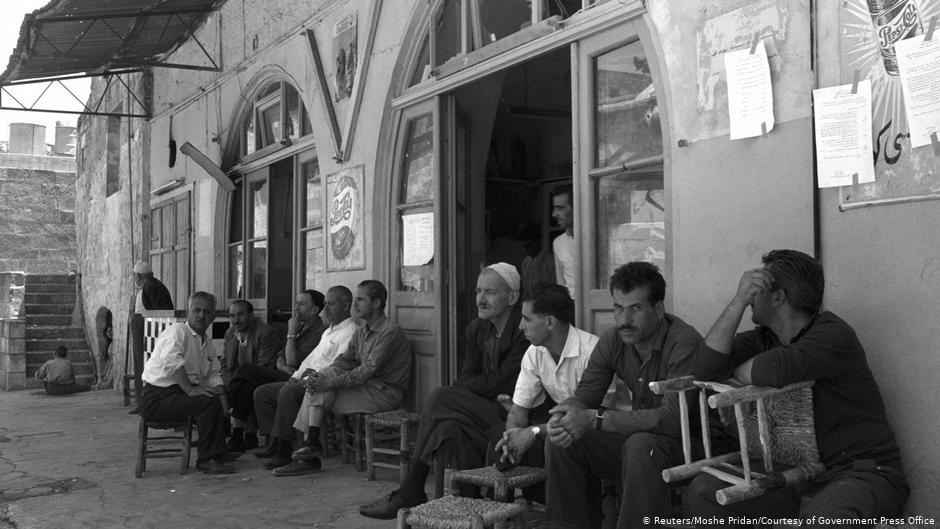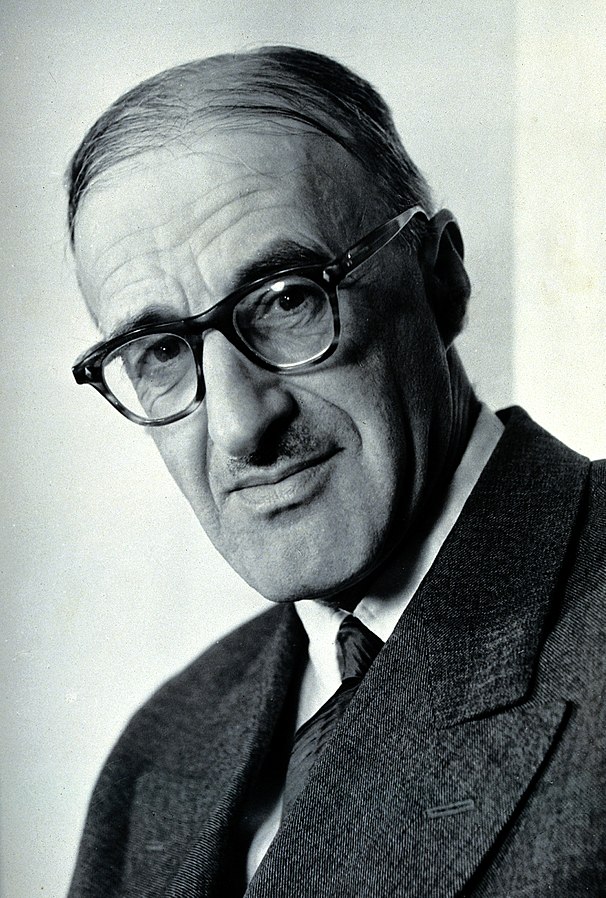A parallel universe between the Jordan and the Med

These days the German public does not hesitate either to engage in full-throated controversy or express quiet anger. The COVID-19 policy with its curfews and school closures, the crisis in the housing market, the role of climate policy, fear on the part of wide swathes of society that their prosperity could be at risk, the widening gap between rich and poor, the effort to find the right balance with Russia and China: some of these issues are openly debated, while others smoulder in the background.
So it simply feels good when a problem finally crops up on which everyone can agree. "We need to combat anti-Semitism, so Germany is on Israel's side" – that was the minimum consensus in recent weeks, celebrated by politicians and the media as a kind of secular high mass. "Intolerable, unacceptable on German streets ..."
Triggering this barrage of condemnation of anti-Semitism was the fighting that had broken out in the Middle East and the accompanying pro-Palestine rallies in German cities, at which some demonstrators shouted anti-Jewish slogans. The gatherings attracted people of Palestinian origin, as well as migrants from other countries in the Middle East and North Africa.
There is no question that protesters who curse the "fucking Jews" must be denounced. And politicians and the media certainly do right to express outrage at such actions. But they both quickly took their criticism a step further, and the buzzword "imported anti-Semitism" started making the rounds. Just how misguided this concept is has already been explained on several occasions.
Washing our hands of German anti-Semitism
Because it sounds like a very transparent attempt at passing blame. As soon as we start talking about the anti-Semitic attitude of Muslim migrants, we have absolved ourselves of the need to address, much less come to terms with, the history of anti-Semitism right here in Germany. If the "migrants" are the anti-Semites, then the Germans are not (anymore). There is much to suggest that lapses like those at the protests mentioned above can be countered with education and enlightenment.
Defeating German anti-Semitism, by contrast, took the largest-scale military operation in human history, at the cost of countless lives. Against those with anti-Semitic tendencies, such as CDU-Party Bundestag candidate and former President of the Office for the Protection of the Constitution Hans-Georg Maaßen, even violence is apparently no defence.

Be that as it may, the bourgeois mainstream in Germany now finally has a rational and ostensibly plausible reason to be wary of immigration and to eye those who have already arrived with suspicion. If these immigrants can be stamped as anti-Semites, then the rejection of migration becomes virtually a badge of tolerance and enlightenment. At the same time, this is a way of reassuring ourselves that we are firmly anchored in the liberal West.
How the charge of anti-Semitism can otherwise be put to good use politically has been demonstrated by CDU chancellor candidate Armin Laschet. He chose to hurl such an allegation at Greta Thunberg, the figurehead of Fridays for Future, for taking a critical stance toward Israel for waging war in Gaza.
How convenient it is to simply trot out the accusation of anti-Semitism as a way to steamroll the annoying climate protection movement. Following this logic, even those who emit massive amounts of greenhouse gases can now suddenly bask in an aura of tolerance.
By proscribing anti-Semitism, Germany's politicians are above all expressing their solidarity with Israel. This, too, is at first glance a welcome avowal. If Germany's past were to have no consequences for the actions of its present representatives, this would open the gates to nihilism and the end of morality.
Losing sight of the essential facts
In a war like the one between Israel and the Palestinian Hamas in May 2021, however, unequivocally siding with Israeli is problematic. In the course of the constant professions of support for Israel's right to self-defence and security ("it is Germany's raison d'etat") and all the condemnations of Hamas's "terrorist attacks", essential facts are being ignored.

This applies both to factors directly contributing to the recent escalation, such as Israel's settlement policy and police operations in Jerusalem, and to basic circumstances that have never been resolved and thus continue to fuel the conflict, such as the continuing occupation of the West Bank and the walling off of the Gaza Strip – basically, the fact that the Palestinians have yet to be granted self-determination and equal rights.
German politics and public opinion seem to take place in a parallel universe, catapulted there by the generation of our grandfathers under the leadership of Adolf Hitler. The windows opening onto the reality of the Middle East from this parallel universe seem to become particularly fogged up whenever things come to a head.
The view is obscured. The population of Gaza then resembles the frightful image of an anti-Semitic mob on the streets of Gelsenkirchen. And Israel shimmers through as a flawless democracy that protects all its citizens.
German discourse is full of empty phrases
Those who shape the German discourse evidently have only a fragmentary view of history. That certain individuals in politics and the media claim they have fully come to terms with Germany's past seems doubtful. If we really had a full understanding of the past, we would surely refrain from stupid talk of imported anti-Semitism.
German anti-Semitism was an entrenched cultural code and a murderous mass delusion. German hatred of the Jews was deeply irrational. Between Israel and the Palestinians, by contrast, there is a tangible and concrete conflict over territory. "Anti-Semitism" is not a useful term for analysing this conflict, as Moshe Zimmerman, a professor of Israeli history, recently noted.

German policy makers sometimes seem to see Israel as a nation that came into being quasi as compensation for the Holocaust. But this is a misleading cliche, because the state of Israel did not arise because of the Shoah, but in spite of it – a fact that is often forgotten.
But there is an even more fundamental reason behind the disjointed nature of German discourse with all its empty phrases. Its spokespeople like to turn a blind eye to the fact that the State of Israel itself is currently undergoing a historical development that is bringing sweeping changes. And it is also easy to forget that the Palestinians have their own history, their own perspective.
The Israeli conquest of the West Bank and Gaza Strip in 1967 during the Six-Day War was a watershed event. No one has highlighted this more forcefully than the philosopher Yeshayahu Leibowitz (1903–1994), who was also a professor of chemistry at the Hebrew University of Jerusalem. Originally from Lithuania, Leibowitz began his studies in Germany in the 1920s but emigrated to Palestine at an early age, fleeing the rampant anti-Semitism at his German university.
Shortly after the Six-Day War, Leibowitz already warned, both orally and in writing, that military rule over 1.5 million Arabs (today nearly four times that number) would turn the war's success into a heavy burden and compromise Israeli society. Security could be achieved neither through oppression nor by building walls, but only through understanding, peace agreements and the granting of self-determination to the Palestinians.
Warning against misuse of Jewish tradition
A scholar and activist with conservative religious views, Leibowitz was concerned about the survival of Judaism, its teachings and testimonies in the modern world, regardless of the political events of the day. He feared that nationalist-religious circles could misuse Jewish tradition to justify an expansionist programme and warned of the dangers of "fascisation" brought by the settler movement.
Fifty years later, Leibowitz's prophecies have come true in a nightmarish way. One Israeli prime minister who ventured to sign a peace treaty with the Palestinians, Yitzhak Rabin, was shot dead in 1995 by a student close to the settler movement. The biggest agitator against the peace treaty, who had launched personal attacks against the assassinated Rabin – even making an appearance next to a cardboard figure showing Rabin in SS uniform – has now headed the Israeli government for many years, namely Benjamin Netanyahu.
Germany is unable to exert any influence over either Prime Minister Netanyahu or the Israeli military as a way of easing tensions in the Middle East conflict. History stands in the way. Instead, the German government is in fact contributing to a perpetuation of the conflict by providing military support to Israel and financing the meagre lives of the Palestinians under the occupation.
Paradoxical as it may sound, Germany is thus helping to stabilise the conflict. Maybe we should try instead to focus a bit more in our public analysis and assessment of the situation on what is actually happening between the Mediterranean and the Jordan River. Otherwise, there is a risk of fully divorcing ourselves from reality.
© Qantara.de 2021
Translated from the German by Jennifer Taylor
The author studied Arabic language and literature at Tel Aviv University from 1993 to 1995 and then worked as a journalist in Israel and the Palestinian territories until 1999. He works today as a journalist for the ARD television news magazine Panorama.
You may also like:
Israeli-Hamas hostilities: same old story, or is it?
Unrest over Sheikh Jarrah: With Jerusalem on edge, Palestinian families face eviction
Isabella Hammad: "Palestinians need to set the terms of their own liberation"
"'Til Kingdom Come": How America's Evangelicals are shaping the Middle East
